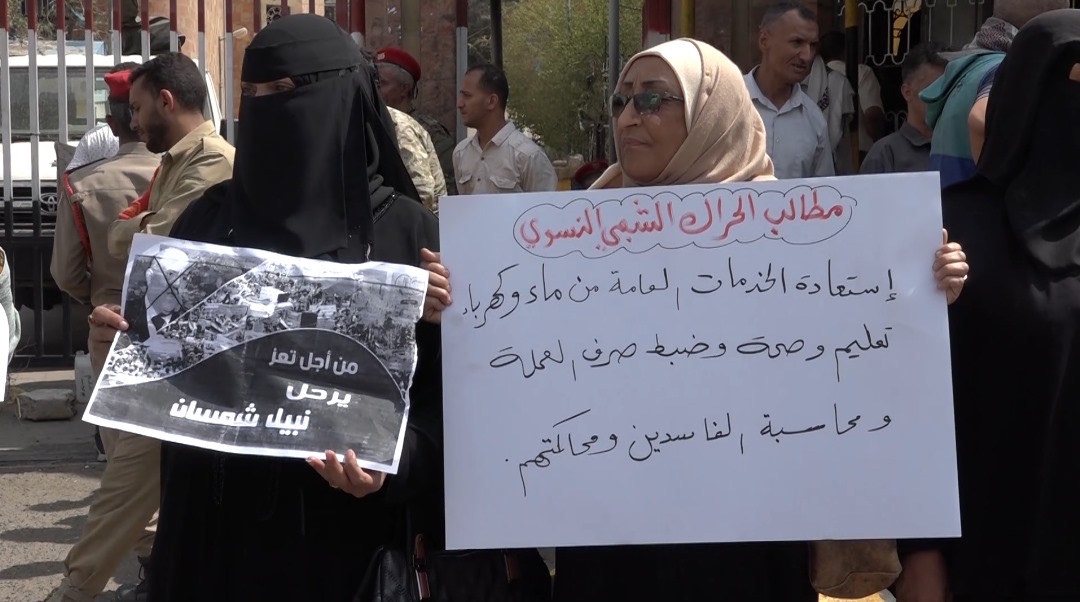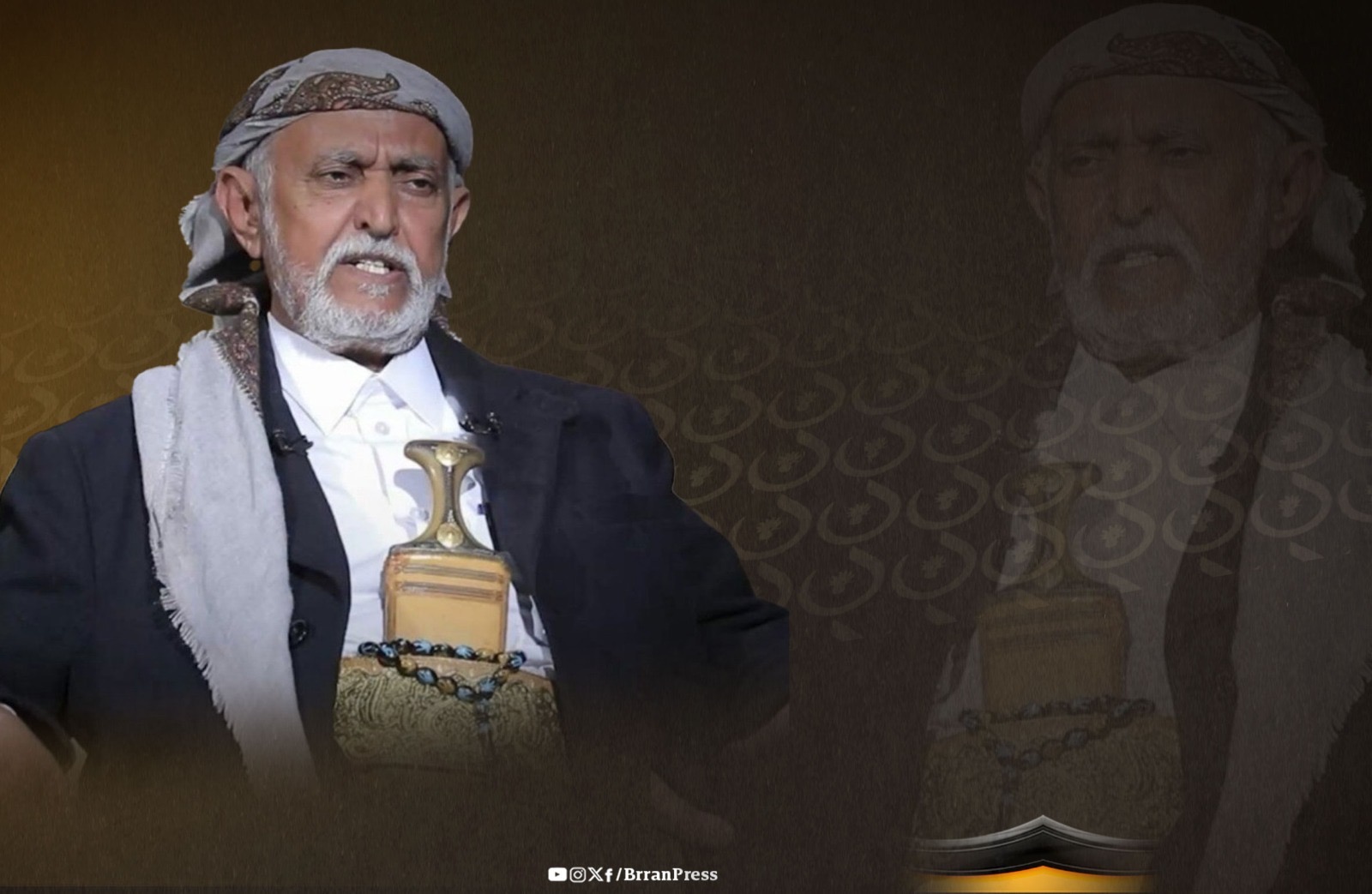Barran Press | Report prepared by - Hisham Tarmoum
Ten years into the devastating war in Yemen, the United Nations has been a prominent player on the political, humanitarian, and diplomatic fronts. Since declaring a Level 3 humanitarian emergency in July 2015, the UN has been heavily involved in the conflict through its various agencies, organizations, and missions.
However, amidst the destruction and suffering, Yemenis are questioning the effectiveness of UN interventions in their country. They are particularly curious about the local actors who have benefited from the UN's legal, political, diplomatic, and humanitarian initiatives, including relief projects and aid programs.
Deep Disappointment and Accusations of Complicity
In an unprecedented move, 50 Yemeni civil society organizations expressed their "deep disappointment" and frustration with the UN's approach to Yemen over the past decade.
In a joint statement released on August 19, 2024, the organizations accused the UN of failing to uphold the principles of humanity, neutrality, non-alignment, and independence.
They argued that the UN's approach in Yemen has "enabled the Houthis to politicize and distort the flow of aid, exploit it for military purposes, commit serious human rights violations, strengthen their military capabilities, and undermine efforts to end the war."
UN's Role in Empowering the Houthis?
Yemeni researcher and former UN employee, Sadeq Al-Wissabi, believes the UN has played a crucial role in the expansion and empowerment of the Houthi group.
Al-Wissabi, in an interview with "Barran Press," described the UN's policies as "complicit and accommodating" towards the Houthis, accusing them of providing concessions and facilitating their actions.
He argued that the UN's "appeasement policy" has emboldened the Houthis, making them more brazen in their dealings with the UN and its agencies.
Responding to Houthi Blackmail?
Al-Wissabi highlighted the UN's significant role in the battle for the liberation of the Hodeidah governorate (southwest Yemen), claiming that the UN intervened to halt the government forces' advance and pressured the legitimate government, Saudi Arabia, and the UAE to cease the operation under the pretext of famine and siege.
He believes the UN "succumbed to Houthi blackmail," while the Houthis continued to exploit the famine card. Despite this, he acknowledged that the Houthi-controlled governorates, including Hodeidah City, are experiencing genuine famine.
Al-Wissabi argued that the Houthis employed the same tactic after the army reached Sana'a, claiming the UN played a crucial role in halting the liberation of the capital.
He explained that the Houthis, through their influence within international organizations, pressured the UN to issue statements and urgent appeals to halt military operations against them, citing the risk of civilian casualties and the potential impact on Sana'a, home to 5 million citizens.
Al-Wissabi accused the UN of pressuring certain countries to facilitate the delivery of shipments to Houthi-controlled areas under the guise of humanitarian aid. He said that the Houthis exploited this to smuggle weapons into their territories under the cover of delivering food and medicine.
UN Misconduct and Houthi Advantage
Concerns extend beyond alleged misconduct by UN agencies and organizations operating in the humanitarian field. There are accusations of transgressions by UN Special Envoys to Yemen, which have reportedly benefited the Houthis.
Yasser Al-Ra'ini, former Minister of State for the Outcomes of the National Dialogue, told "Barran Press" that some UN envoys have overstepped their roles as mediators, going beyond their mandate to bridge differences between Yemeni factions. He claims these envoys have acted in ways that even surpassed the authority of the legitimate Yemeni government. Al-Ra'ini holds the recognized government responsible for allowing these transgressions, arguing that they could have objected, rejected the envoys, and requested their replacement.
International Interference and Prolonging the Conflict
Al-Ra'ini further revealed significant regional and international interference in the UN's operations in Yemen. He claims that powerful nations with influence within the UN and the Security Council have attempted to manipulate the UN's mediation efforts to end the conflict in Yemen.
These interventions, he asserts, have contributed to the prolongation of the Houthi rebellion and the expansion of their influence. Despite this, Al-Ra'ini maintains that UN mediators or other countries cannot impose solutions that contradict the established framework recognizing the conflict as a struggle between a rebel militia and a legitimate, internationally recognized government.
The economic sphere has become a stage for alleged UN manipulation and misconduct, ultimately harming Yemeni citizens. A recent example is the UN envoy's alleged pressure on the Presidential Leadership Council to reverse decisions made by the Central Bank aimed at regaining control over the banking sector from the Houthis.
Economic journalist Wafiq Saleh states that the UN has fully condoned the Houthi group's actions against the national economy. He points to the Houthis' plundering of public resources, the perpetuation of a currency divide, and the withholding of salaries for eight consecutive years, despite the group's substantial revenue collection.
Saleh also alleges that the UN has facilitated and provided resources to the Houthis under the guise of humanitarian aid since the war began. He claims the UN has provided financial and logistical support to Houthi-controlled institutions, ostensibly to mitigate the humanitarian crisis.
The UN's role in Yemen remains deeply controversial, with many questioning its effectiveness and neutrality. The allegations of misconduct and manipulation raise serious concerns about the organization's ability to contribute to a peaceful resolution of the conflict and alleviate the suffering of the Yemeni people.
Pressures for rebellion
While the UN has condemned the actions of the internationally recognized Yemeni government, including recent measures taken by the central bank, journalist Wafiq Saleh expressed surprise that the UN has not exerted similar pressure on the Houthis to cease their war against the national economy, the financial sector, and businesspeople.
Saleh argues that the UN continues to cite the humanitarian situation as a reason for inaction, despite the Houthis being the primary cause of the deteriorating humanitarian conditions, declining services, and escalating humanitarian and economic crises.
As Yemenis awaited a strong response from the UN against the Houthis' violations, including their widespread campaigns against UN staff in Sana'a and other areas under their control since June, the UN's actions took an unexpected turn.
This has prompted Yemeni civil society organizations to express their "deep disappointment" at what they perceive as the UN's inaction following the Houthis' recent mass kidnappings and enforced disappearances of civil society leaders, UN staff, and employees of international and local NGOs, which began in June.
In a joint statement, the organizations stated that while they expected the UN to hold the Houthis accountable for their actions, including the kidnapping of staff, the raid on the Office of the High Commissioner for Human Rights, the seizure of equipment and documents, the systematic erosion of women's rights, the indoctrination and recruitment of children, they were "deeply disappointed" by the approach of the new Resident Coordinator, Julien Harneis.
They argue that instead of taking a firm stance, Harneis has adopted a more lenient approach towards the Houthis since assuming his position. They claim that the UN official has emphasized the need for the UN to continue working with the Houthis and resume the World Food Programme's general food aid program regardless of the circumstances.
According to the statement, the UN official has told the UN and international NGO country directors in meetings that the Houthis have "won the war" and the UN's role is limited to supporting them.
Yemeni organizations consider the UN official's actions and statements to be "undermining the UN's credibility and failing to address the serious issues at hand, further exacerbating the long-standing suffering of Yemenis."
The statement also notes that UN staff, including those from the World Food Programme and the World Health Organization, have chanted the Houthis' slogan ("The Shout") in two separate meetings, even in front of their UN managers. This highlights the extent to which the UN and its agencies have deviated from principles of neutrality, integrity, and humanitarian intervention controls.
The UN previously announced in June that the Houthis had kidnapped 13 UN staff, including six working for the Office of the High Commissioner, as well as over 50 NGO staff and one embassy employee.
A Dead Truce and a Persistent Crisis
In April 2022, the UN declared a "humanitarian truce," but Yemenis have yet to see any tangible effects. Public roads between cities remain closed, and thousands of Yemenis are languishing in overcrowded prisons, with the Houthis' escalating campaigns to kidnap civilians, including UN staff, continuing.
The Houthi siege of Taiz persists despite its being a key objective of the truce. The only change has been the Houthis' growing power and their focus on expanding the war beyond Yemen's borders, threatening international navigation in the Red Sea.





